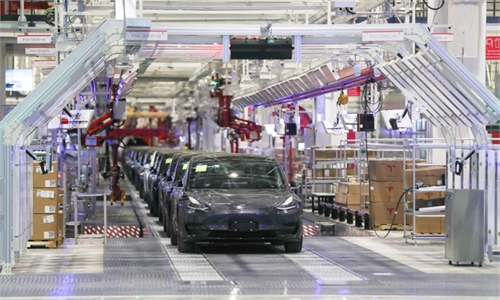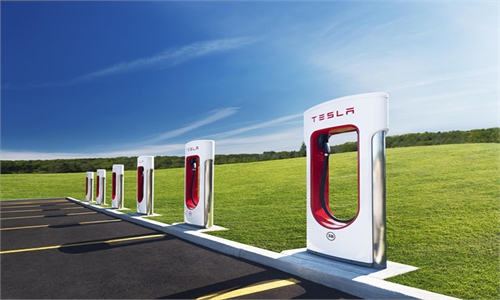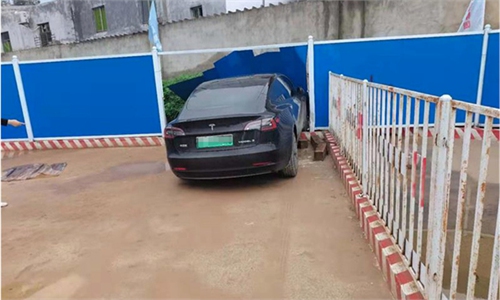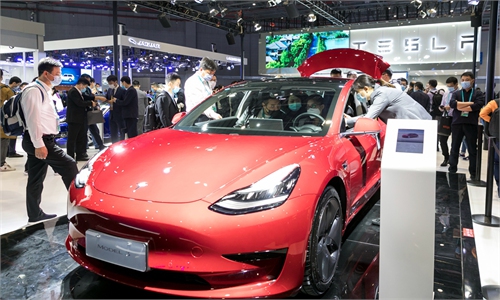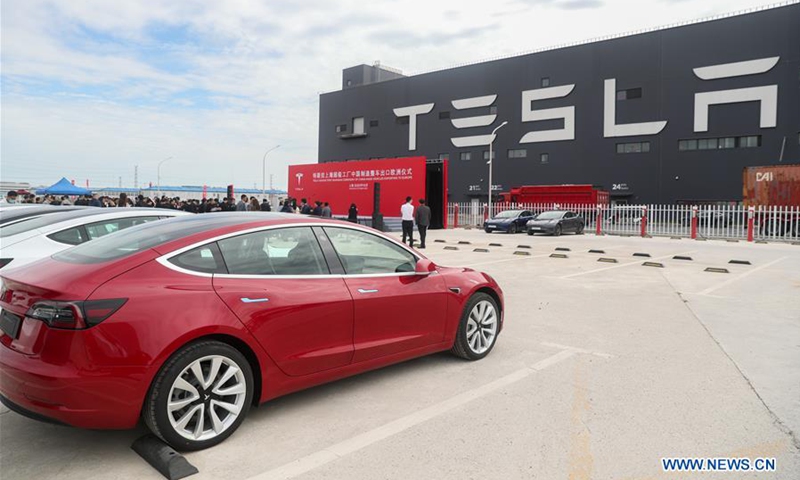
Photo taken on Oct. 26, 2020 shows the Tesla China-made Model 3 vehicles at its gigafactory in Shanghai, east China. Photo: Xinhua
All Tesla models can get license plates as normal, the company said in a statement sent to the Global Times on Thursday, responding to the recent rumor that Shanghai's Pudong Vehicle Administration Bureau had temporarily halted the registration of all their models over security concerns due to cameras installed in the vehicles.
The rumor went viral on Wednesday, prompting the US car firm to issue a quick response in order to curb any negative impact on its business.
The authorities also said when reached by the media that there is no such regulation in Shanghai's vehicle administration bureau, Shanghai Security News reported on Thursday.
Electric vehicles can be licensed directly after buyers have completed relevant audits and number selection, the report said.
However, staff workers at a local vehicle administration office told Shanghai Security News on Thursday that it is not easy to get a license for Tesla cars. Others said that Tesla buyers can get a license plate, but need to be approved first.
A member of customer service staff at the local public service hotline said when reached by the Global Times on Thursday that they had not seen any notice from relevant authorities about the suspension.
The issue of privacy violations in cars came into the spotlight recently when the subject of high-definition images from cameras inside Tesla cars topped the hot search list on Sina Weibo.
Tesla also faced scrutiny in March when the military banned Tesla cars from entering its complexes, citing security concerns over cameras in its vehicles, Reuters reported.
Tesla's CEO Elon Musk denied the Reuters report, saying that if Tesla uses its cars to spy on China or anywhere in any country, "we will get shut down everywhere."
Compared with the rapid development of autonomous driving technologies, regulation and laws in the sector have not kept up accordingly, Chinese experts said, while suggesting that China should have a role in formulating laws, regulations and international standards for personal privacy and data information security.
Li Xiaoguang, president of the Beijing Unmanned Technology Research Institute, told the Global Times that driverless cars, which can collect a lot of valuable data, are virtually mobile surveillance data factories, which means that personal privacy and government information, including secrets, may be leaked.
"In the autonomous driving sector, China has the opportunity to catch up with the US or surpass it in terms of technology and products. Meanwhile, the country and its leading firms could participate in formulating international standards and regulation," said Li.
China has established a rudimentary legal framework for protecting privacy but there is no specialized legal system for the autonomous driving industry, according to Li.
